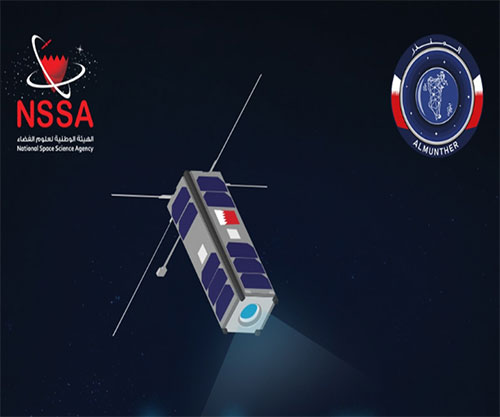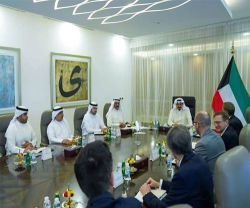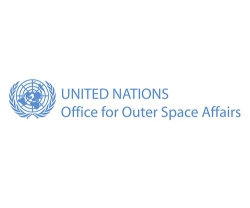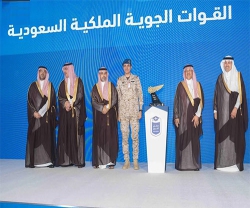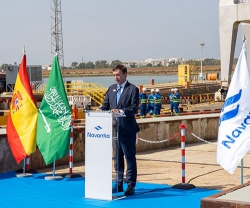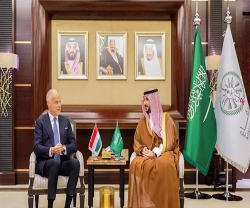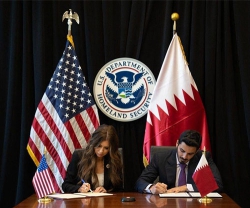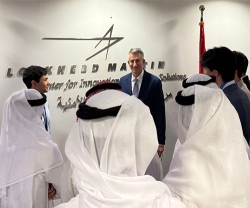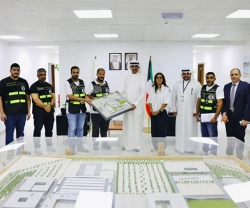In a landmark moment for the Kingdom of Bahrain, the National Space Science Agency (NSSA) has successfully launched Al Munther, the Kingdom’s first domestically designed and built satellite.
The satellite was launched aboard a SpaceX Falcon 9 rocket as part of the Transporter-13 mission from Vandenberg Space Force Base in California, USA, on Saturday, March 15, 2025, Bahrain News Agency (BNA) reported.
On this occasion, Lieutenant General His Highness Shaikh Nasser bin Hamad Al Khalifa, National Security Advisor, Royal Guard Commander, and Secretary General of the Supreme Defence Council, extended congratulations to His Majesty King Hamad bin Isa Al Khalifa, the Supreme Commander of the Armed Forces, and His Royal Highness Prince Salman bin Hamad Al Khalifa, the Crown Prince, Deputy Supreme Commander of the Armed Forces, and Prime Minister, on the successful launch.
His Highness highlighted that Al Munther is the first Bahraini satellite developed using innovative Bahraini expertise, representing a significant step in the Kingdom’s efforts to localise space technology and keep pace with global scientific advancements. His Highness also lauded the NSSA team for their dedication and perseverance in overcoming challenges during the project’s development.
His Highness underscored the space sector’s role as a key driver of the future knowledge-based economy, emphasising its rapid growth and potential for advancing national capabilities. His Highness expressed Bahrain’s commitment to expanding its space initiatives to strengthen its international presence and contribute to scientific and technological progress.
The initial operational phase of the satellite includes testing critical subsystems to ensure full functionality. This stage involves the transmission of vital signals, system calibration, communication stability verification, and data processing accuracy checks. Once fully operational, Al Munther will begin capturing satellite imagery and transmitting data to Bahrain’s ground station. Its payload includes artificial intelligence algorithms and space cybersecurity applications.
This historic achievement marks a significant milestone in Bahrain’s journey towards becoming a regional leader in space technology and innovation. The launch of Al Munther underscores the Kingdom’s commitment to advancing its capabilities in space science and technology, while showcasing the expertise of Bahraini engineers and scientists.
The Al Munther satellite was successfully deployed into its designated orbit at an altitude of 550 km above sea level. The satellite will now undergo a series of orbital tests to ensure its operational readiness before commencing full-scale operations.
The satellite is equipped with advanced technological payloads, including a medium-resolution space camera (20 meters/pixel) designed to capture high-quality images of Bahrain and its territorial waters, an artificial intelligence (AI) system capable of real-time image analysis, making Al Munther the first nanosatellite in the region to incorporate such advanced AI capabilities, a cybersecurity payload featuring advanced encryption technologies to safeguard the satellite’s data from unauthorized access or tampering, and a radio broadcast payload that will transmit the Bahraini national anthem and a special message from His Majesty King Hamad bin Isa Al Khalifa, King of Bahrain, to radio enthusiasts worldwide.
One of the most distinctive features of Al Munther is its ability to broadcast the Bahraini national anthem and a royal message via digital signals. These transmissions can be received by amateur radio operators and space enthusiasts around the globe using simple equipment. This initiative aims to promote Bahrain’s space achievements and enhance its international presence in the field of space exploration.
The “Al Munther” project has provided a unique opportunity for a team of young Bahraini engineers to gain hands-on experience in developing advanced space systems. From mission concept development and engineering requirements to system design, software development, and environmental testing, the project has enabled Bahraini talent to contribute to every stage of the satellite’s development.
The National Space Science Agency (NSSA) is responsible for advancing Bahrain’s space sector and fostering innovation in space science and technology. The agency works to develop national capabilities in space exploration, satellite technology, and space applications, contributing to Bahrain’s sustainable development and economic diversification.

